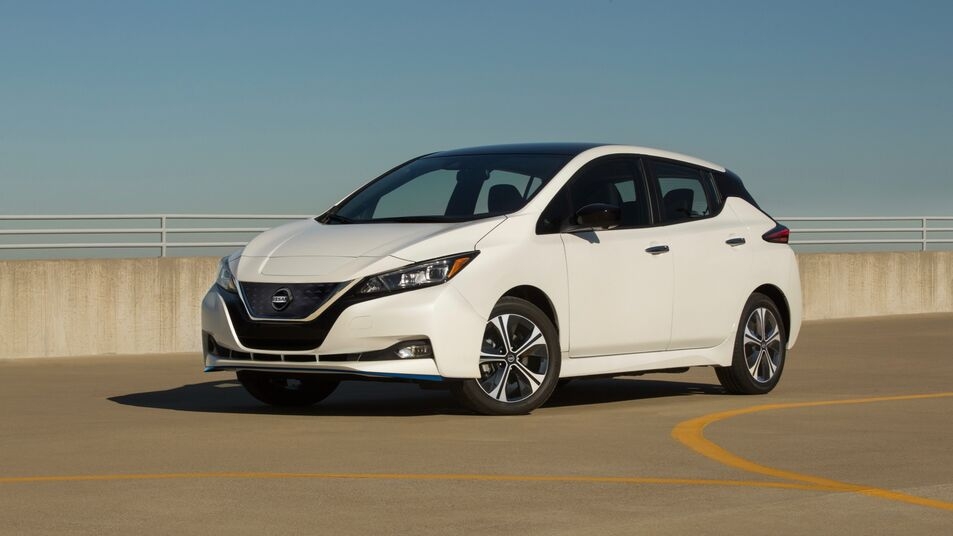Did you know that nearly 1 in 10 car buyers in the U.S. purchase their vehicle from out of state? It might sound surprising, but with the internet making it easier to browse dealerships across the country, more people are considering crossing state lines to find the perfect ride.
But is it actually worth it?
Let’s break it down. Buying a car from another state can offer big perks—like lower prices, a better selection, or even regional discounts you can’t get at home. Some buyers stumble on rare models or better financing options. Sounds like a win, right?
Well, not so fast.
There are some hidden challenges too. You might face extra transportation costs, like shipping the car or flying out to get it. And don’t forget about the legal stuff—every state has its own rules for registration, vehicle inspections, and emissions standards. Miss a step, and you could end up with extra paperwork, unexpected taxes, or worse, a car you can’t even drive legally in your state.
Worried about warranty coverage? That’s another thing to watch. Some warranties don’t transfer across states, or may only be valid at specific dealerships. And when it’s time to resell or trade in, a car with an out-of-state history might not fetch the price you expect—resale value can vary by location.
This guide covers everything you need to know before you make the move—from cost considerations and transportation logistics to inspection concerns, consumer protections, and tax implications. It even includes a helpful FAQ section to clear up your biggest questions.
So, is buying a car from another state a smart move or more trouble than it’s worth?
Let’s dive into the pros and cons so you can decide with confidence.
Legal and Registration Issues: Navigating the Pros and Cons of Out-of-State Car Purchases
Legal and registration considerations are crucial when purchasing a car from another state. One advantage of buying a car in a different state is that you may have access to a wider selection of vehicles, including models that are not as readily available in your home state. However, the process of registering an out-of-state vehicle can be complex and time-consuming.
You will need to ensure that the vehicle meets your state’s safety and emissions standards, and you may be required to undergo additional inspections or obtain specific documentation. Moreover, navigating the legal requirements for transferring ownership and obtaining a new title can be challenging, especially if the laws and procedures differ significantly from those in your home state.
Vehicle Inspection and Warranty Concerns: Evaluating the Pros and Cons of Buying a Car from a Different State
When purchasing a car from another state, it’s essential to carefully consider the implications for vehicle inspections and warranties. On the positive side, you may find that the vehicle you are interested in has undergone more rigorous inspections or has a longer warranty period than what is typically offered in your home state. Additionally, if the vehicle has been well-maintained and serviced in accordance with another state’s regulations, this can provide added peace of mind regarding its condition.
Click here to learn more about buying a car out of state. However, there are potential drawbacks to be aware of as well. For instance, if the vehicle’s warranty is not transferable to your home state or if certain repairs are only covered at specific dealerships, this can limit your options for servicing and maintenance. Furthermore, if the vehicle does not meet your state’s inspection requirements, you may incur additional expenses to bring it up to standard.
Transportation and Logistics: Weighing the Pros and Cons of Bringing a Car from Another State
| Pros | Cons |
|---|---|
| Convenience of having a car | Potential additional costs for registration and taxes |
| Ability to transport belongings | Possible wear and tear on the car during transportation |
| Familiarity with the vehicle | Potential logistical challenges in transporting the car |
| Potential cost savings compared to buying a new car | Possible need for vehicle inspections and modifications to meet state regulations |
Transportation and logistics are significant factors to consider when contemplating the purchase of a car from another state. One advantage of bringing a car from another state is that you have the opportunity to personally inspect and test drive the vehicle before making a decision. This can provide valuable insight into its condition and performance, which may not be possible when purchasing a car remotely.
However, there are logistical challenges to be mindful of as well. Transporting the vehicle to your home state can be costly, especially if you need to hire a professional transport service or make multiple trips to complete the process.
Additionally, coordinating the timing of the purchase, transportation, and registration can be complex and may require careful planning to avoid any disruptions or delays.
Tax Implications: Understanding the Pros and Cons of Buying a Car in a Different State
Tax implications play a significant role in the decision to purchase a car from another state.
One potential advantage is that you may be able to take advantage of lower sales tax rates or other tax incentives that are offered in the state where you are buying the vehicle.
This can result in substantial savings compared to purchasing a car in your home state, where tax rates may be higher.
However, it’s important to consider the potential cons as well. Depending on your home state’s tax laws, you may still be required to pay sales tax or use tax when registering the out-of-state vehicle, which can diminish any initial tax savings. Moreover, navigating the complexities of multi-state taxation can be challenging, and it’s essential to ensure compliance with all relevant tax laws and regulations.
Consumer Protections: Exploring the Pros and Cons of Purchasing a Car in Another State
Consumer protections are an important consideration when contemplating an out-of-state car purchase. One potential advantage is that some states have consumer protection laws that offer additional safeguards for buyers, such as lemon laws or extended warranty requirements. By purchasing a car from a state with robust consumer protections, you may have greater recourse in the event of defects or malfunctions with the vehicle.
However, it’s crucial to be aware of potential drawbacks as well. If an issue arises with the vehicle after it has been transported to your home state, resolving disputes or seeking recourse under another state’s consumer protection laws can be complex and may involve additional legal expenses.
Resale and Trade-in Value: Assessing the Pros and Cons of Buying a Car from a Different State
Resale and trade-in value considerations are important when evaluating an out-of-state car purchase. One potential advantage is that certain vehicles may have higher resale or trade-in values in your home state compared to where they were originally purchased. This can be particularly relevant for popular models or vehicles with specific features that are in high demand locally.
Additionally, if you plan to trade in the vehicle at a later date, purchasing a car from another state with lower initial costs can potentially result in greater trade-in value down the line. However, it’s essential to consider potential cons as well. Factors such as regional preferences, market conditions, and differences in demand for specific models can impact resale and trade-in values, and it’s important to conduct thorough research to assess how these factors may influence your long-term ownership costs.
In conclusion, purchasing a car from another state presents both advantages and challenges across various aspects such as cost considerations, legal and registration issues, vehicle inspection and warranty concerns, transportation and logistics, tax implications, consumer protections, and resale and trade-in value. It’s crucial for buyers to carefully evaluate these factors and conduct thorough research to make an informed decision that aligns with their individual needs and circumstances.
FAQs
What are the pros and cons of purchasing a car in another state?
Pros of purchasing a car in another state may include a wider selection of vehicles, potentially lower prices, and the opportunity to find a rare or unique model. However, cons may include the hassle of dealing with out-of-state paperwork, potential transportation costs, and the need to navigate different state laws and regulations.
What are the financial pros and cons of buying a car in another state?
Financial pros of buying a car in another state may include potential cost savings due to lower prices or different tax rates. However, financial cons may include additional expenses such as transportation costs, potential registration and title transfer fees, and the need to comply with different state tax laws.
What are the legal and registration issues when purchasing a car from another state?
Legal and registration issues when purchasing a car from another state may include the need to comply with different state laws regarding vehicle registration, title transfer, and emissions requirements. Additionally, buyers may need to navigate the process of obtaining temporary tags or permits to drive the vehicle back to their home state.
What are the concerns regarding vehicle inspection and warranty when buying a car from a different state?
Concerns regarding vehicle inspection and warranty when buying a car from a different state may include the need to ensure the vehicle meets the inspection requirements of the buyer’s home state. Additionally, buyers may need to consider how warranty coverage and service will be handled if the vehicle was purchased from a dealership located in another state.
What are the transportation and logistics considerations when bringing a car from another state?
Transportation and logistics considerations when bringing a car from another state may include the cost and logistics of transporting the vehicle to the buyer’s home state. Buyers may need to consider whether to drive the vehicle themselves, hire a transport service, or arrange for the vehicle to be shipped.
What are the tax implications of buying a car in a different state?
Tax implications of buying a car in a different state may include the need to understand and comply with the tax laws of both the state where the vehicle is purchased and the buyer’s home state. Buyers may need to consider sales tax, use tax, and potential tax credits or exemptions when purchasing a vehicle from another state.
What are the consumer protections to consider when purchasing a car in another state?
Consumer protections to consider when purchasing a car in another state may include understanding the differences in lemon laws, vehicle history disclosure requirements, and consumer rights related to vehicle purchases. Buyers should research the consumer protection laws of both the state where the vehicle is purchased and their home state.
What are the considerations for resale and trade-in value when buying a car from a different state?
Considerations for resale and trade-in value when buying a car from a different state may include understanding how the vehicle’s history and out-of-state status may impact its resale or trade-in value. Buyers should consider how potential buyers or dealerships in their home state may perceive and value a vehicle that was purchased from another state.







